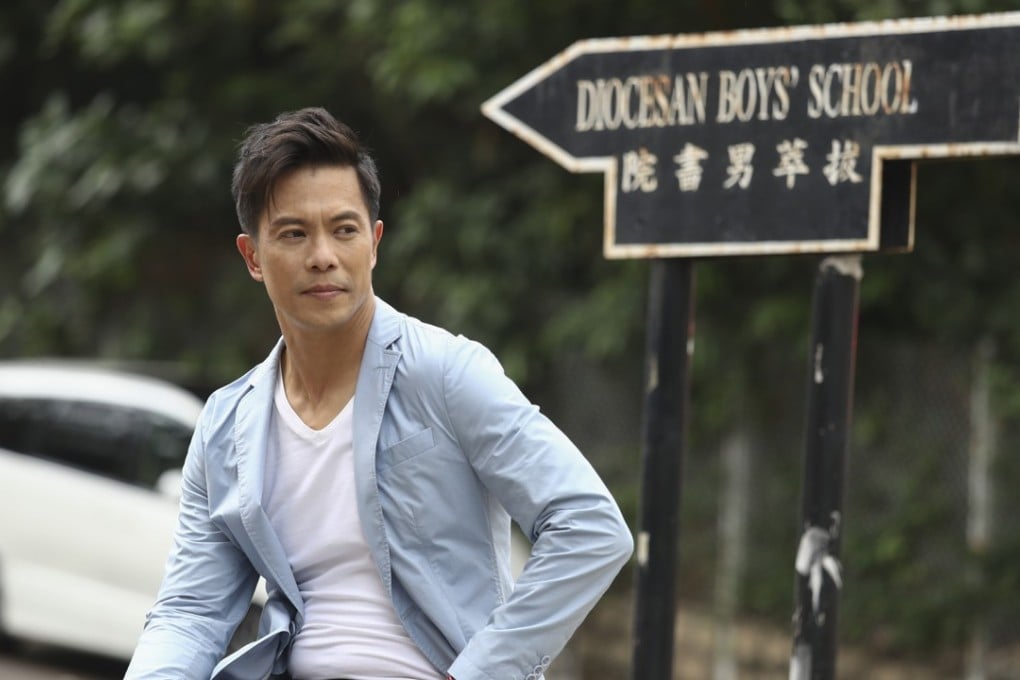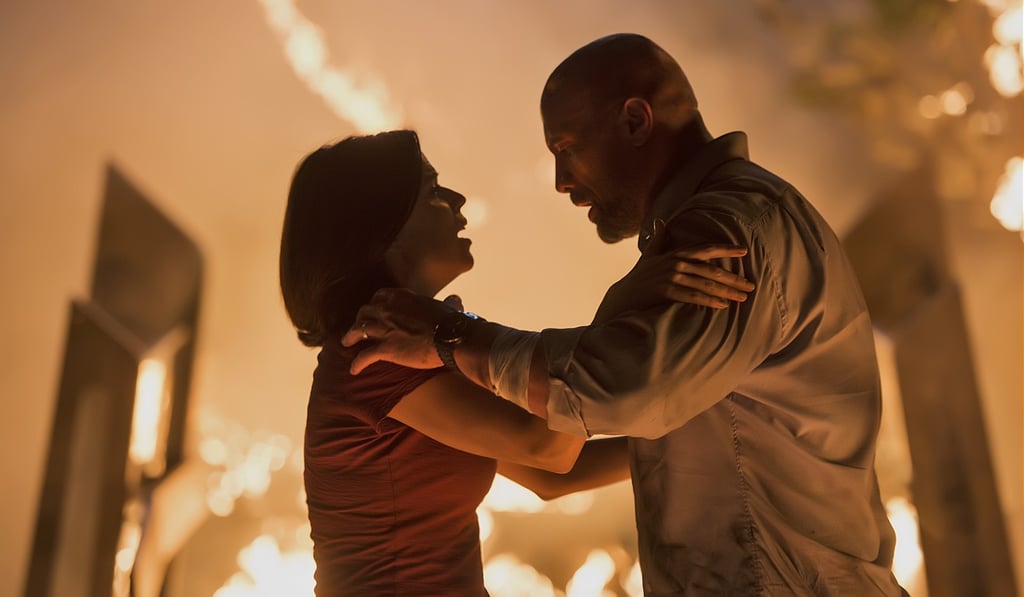How Hong Kong-born Skyscraper star Byron Mann helped The Rock bring the city to life
Byron Mann insisted his home city was portrayed accurately – and that the Cantonese language took a major role – in the American action film

This month, a very tall building in Hong Kong will come under attack. Nasty men will do nasty things. Fires will be lit and these will rage, to impressive effect, against the Hong Kong skyline. Winsome children will be threatened. Their father will perform many heroic, and improbable, deeds to save them and his reputation. As he is Dwayne “The Rock” Johnson, chances are sky high that he will succeed.
Anyone of a certain age who has seen the trailer for Skyscraper, which opens here on Thursday, will surely recall the 1988 cinema classic Die Hard, set in the soaring heights of a 35-storey Los Angeles office tower. One of Skyscraper’s nasty men even has a nasty European (Danish) accent as if in homage to Die Hard’s Alan Rickman, who memorably played a German gang leader prowling the upper altitudes of the fictional Nakatomi Plaza. In the 1980s, of course, the Japanese economy was booming, Japan was buying up America and savvy Westerners were learning Japanese.
Hollywood has since moved on. Naturally, the star is still American (and male) but now he must battle new superlatives further afield, where incalculable numbers of ticket buyers await urgent rescue from summer boredom. So this time, the structure is more than 1km tall, has 240 floors and looks like a cross between a Alberto Giacometti sculpture and the Eye of Sauron. It’s the “most advanced building in the world”, apparently. And, judging by the film’s trailer, it’s located on top of the Cultural Centre in Tsim Sha Tsui, where continental China dips its enormous toe into the harbour.
When things go wrong, therefore, the official representatives of law and order on the scene are Asia’s finest, the Hong Kong Police Force. Sorting out the mayhem is Chief Inspector Wu, played by Byron Mann.
Mann, 50, who grew up in Kowloon, is a solid actor who has been a presence in many films, including Cold War (2012), The Man with the Iron Fists (2012) and The Big Short (2015), and a recurring character in such American television series as Arrow (2012-2017), Hell on Wheels (2015-2016), The Expanse (2017) and Altered Carbon (2018).

As well as playing Wu, Mann – who studied law and was called to the California bar – took it upon himself to ensure that the Hong Kong police were accurately portrayed in the film. As viewers in Asia will know, Hollywood is not famous for attention to detail when its gleam swivels in that direction. Given that Skyscraper was actually shot in Canada, the temptation to play fast and furious with the facts must have been particularly strong. Mann, however, was determined to serve this city with pride and care in all aspects of his role.